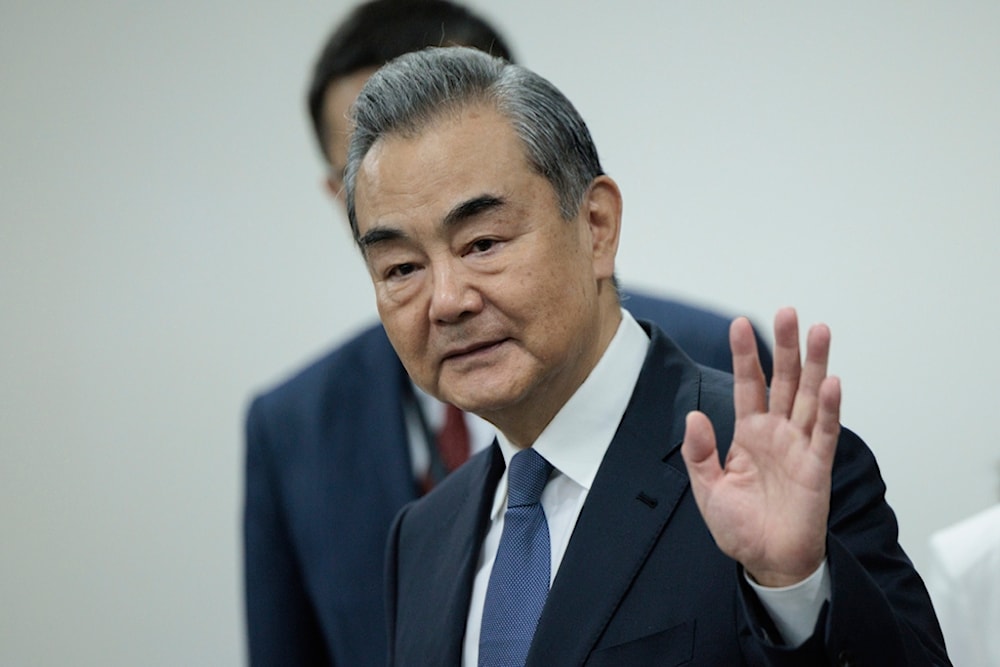Wang: AUKUS pact 'raises serious nuclear proliferation risks'
During a visit to enhance ties with Papua New Guinea, China's Foreign Minister Wang Yi criticizes the AUKUS security pact, warning against increased nuclear proliferation in the South Pacific, and emphasizing the need for respecting regional treaties and sovereignty.
-

Chinese Foreign Minister Wang Yi waves before the start of his bilateral meeting with Indonesian Foreign Minister Retno Marsudi in Jakarta, Indonesia, Thursday, April 18, 2024. (AP)
During a visit to enhance Beijing's relations with Papua New Guinea, China's Foreign Minister, Wang Yi, in a joint press brief with his counterpart Justin Tkatchenko at Port Moseby, criticized the AUKUS security pact, accusing Western powers of causing division and potentially increasing nuclear proliferation in the South Pacific.
The pact involves the United States and Britain providing Australia with nuclear-powered submarines that are conventionally armed.
Wang further explained that the three-way AUKUS agreement "runs counter" to a South Pacific treaty which banned nuclear weapons in the region.
The most recent move by the bloc, according to the FM, "raises serious nuclear proliferation risks".
"The recent attempts to draw more countries to join in such an initiative of stoking confrontation between blocs and provoking division are totally inconsistent with the urgent needs of the island countries," the Foreign Minister said, referring to Australia and US relations with the Solomon Islands.
On a different but similar note, Wang touched on the situation vis-a-vis the Solomon Islands, whose incumbent prime minister, Manasseh Sogavare, has improved relations with China while his opponents consider Beijing's growing influence potentially alarming.
"We believe that the people of Solomon Islands have the wisdom and ability to determine the future of their country. Island nations belong to their people," Wang said adding "They are not the backyard of any big country."
In turn, Papua New Guinea's Tkatchenko welcomed the Chinese FM, noting that the two countries have "reached some understanding" in their talks and stressing that "PNG values China as an important bilateral partner."
AUKUS: UK, Australia sign new defense agreement
Earlier last month, the United Kingdom and Australia signed a new defense agreement in Canberra, permitting two longtime allies to host troops and share military intelligence.
As revealed by ministers of both countries, this new deal entails a "status of forces agreement" permitting troops from both countries to be deployed and operate in the other.
During a ceremony in the parliament in Canberra, UK Defense Minister Grant Shapps signed the agreement with his Australian counterpart Richard Marles. After the signing, Marles told reporters, "As the world becomes more complex and uncertain, we must modernize our most important partnerships."
"The agreements we reached today will secure this outcome into the future," he added.
The agreement, however, is still not a full mutual defense pact, which would bind one side to interfere if the other was attacked or under threat. Instead, both sides revealed that they had a "commitment to consult" with each other if any was under threat.
Read more: China, US defense chiefs break 18-month streak, discuss ties, Taiwan

 3 Min Read
3 Min Read








